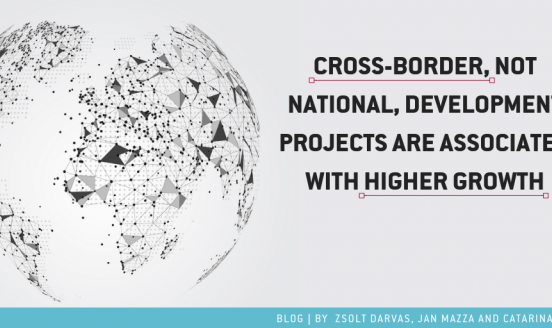European Union cohesion project characteristics and regional economic growth
A new approach, which estimates 'unexplained economic growth', provides insights into the types of European Union cohesion projects that produce bette

This paper is an extended and revised version of an original study titled ‘Effectiveness ofcohesion policy: learning from the project characteristics that produce the best results’, done by the authors (along with Antoine Mathieu Collin) for the European Parliament’s Committee onBudgetary Control (CONT). The opinions expressed in this document are the sole responsibilityof the authors and do not necessarily represent the official position of the European Parliament. The authors thank Kaare Barslev, István Kónya, several colleagues from the European Parliament
and European Commission, and seminar and conference participants at Bruegel, the 2020 European Week of Regions and Cities and the 2020 Conference of the Hungarian Economic Association for comments and suggestions.
Due to problems with existing methodologies that aim to identify the causal impact of European Union cohesion policy on economic growth, we adopted a novel methodology. We first estimated ‘unexplained economic growth’ by controlling for the influence of various region-specific factors, and then analysed its relationship with about two dozen characteristics specific to projects carried out in various regions in the context of EU cohesion policy. We found that the best-performing regions have on average projects with longer durations, more inter-regional focus, lower national co-financing, more national (as opposed to regional and local) management, higher proportions of private or non-profit participants among the beneficiaries (as opposed to public-sector beneficiaries) and higher levels of funding from the Cohesion Fund. No clear patterns emerged concerning the sector of intervention.
Recommended citation
Darvas, Z., J. Mazza and C. Midões (2021) ‘European Union cohesion project characteristics and regional economic growth’, Working Paper 02/2021, Bruegel

